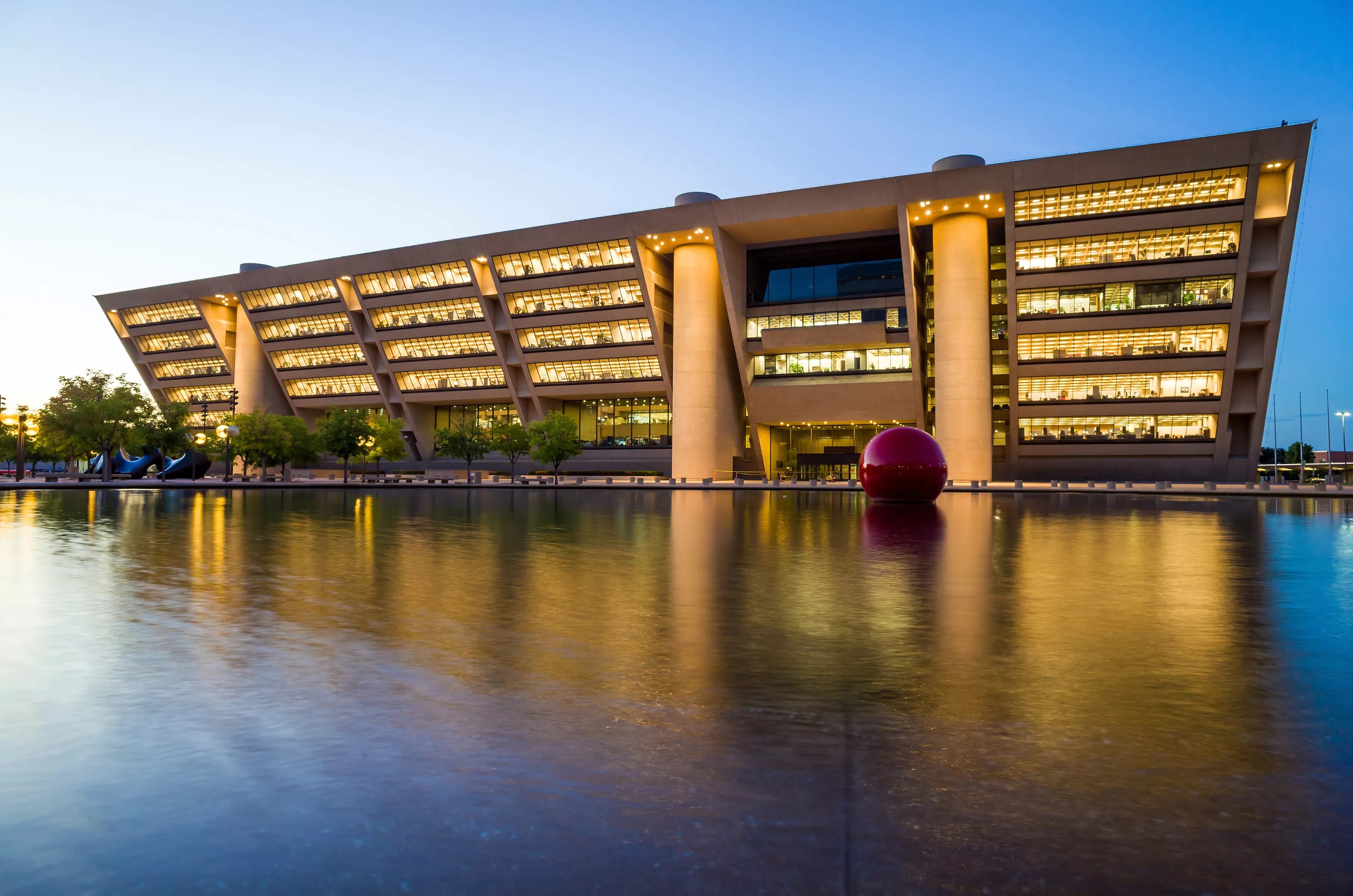
Adobe Stock

Audio By Carbonatix
Dallas City Manager Kimberly Bizor Tolbert doesn’t like the words “budget cuts.”
She said as much on Wednesday, when the council discussed the proposed tax rate for the upcoming fiscal year, which could be half a penny cheaper per $100 valuation than it was this year. After council member Adam Bazaldua used the word “cuts” to describe the city departments receiving less funding next year than they did this year, Tolbert reminded Baz that “cuts is not one of our words.” Instead, she prefers to think of the reshaped budget as an “optimization of service” that “serves the priorities of the community,” or something.
Whatever words you want to use, almost no city office (outside of the police and fire departments) is going into the 2025-2026 fiscal year with as much spending money as they’ve had in the past – even though, for the first time, Dallas’ operating budget could top $5 billion.
For some of the council’s more fiscally conservative members, that burgeoning budget is a problem, even as corners of City Hall that manage services such as public libraries and parks are scratching their heads about what the future will look like.
“I think we need to be tightening our belts,” said newly elected council member Bill Roth on Wednesday.
And, evidently, Roth truly means that. And he doesn’t mind the words “budget cuts” nearly as much as Tolbert does.
Thursday evening, the District 11 representative sent a memo to the city council, mayor, city manager and Dallas’ Chief Financial Officer, Jack Ireland, that outlined a few areas where Roth believes Marilla Street can slim down. The suggestions are about as close as City Hall can get to taking Ozempic.
In the memo, Roth outlines 14 city programs that he feels are “non-essential” to our city’s functioning. If slashed, these programs would represent $13,118,570 in savings in the upcoming fiscal year and $13,389,775 saved in the 2026-2027 budget.
Among the programs on Roth’s hit list are the Office of Community Police Oversight (which carries a $673,836 price tag), the Office of Ethics and Compliance ($150,345), the Economic Mobility initiative ($901,072) and the Vision Zero program ($1,597,245). The $1.4 million Drivers of Opportunity program, the $305,087 for public art contracts, the $2.6 million earmarked for climate action planning and the development services’ affordable housing program, which costs $934,727, also got the red line from Roth.
For the most part, Roth believes that the services these programs provide could be filled elsewhere. For instance, the U.S. Department of Justice should be solely responsible for investigating police complaints, not a city agency. City Hall’s Human Resources department could manage ethical compliance issues. He suggests that public art and cultural services should be administered by philanthropic grants, private donors and community partnerships.
Three of Roth’s suggested cuts, the Business Enterprise Hub, the Drivers of Opportunity program and the Economic Mobility program, were flagged because of potential non-compliance with federal mandates on Diversity, Equity and Inclusion initiatives. (The city council did approve a pause on DEI-related programming earlier this month, and the City Manager’s office is expected to provide a complete overview of non-compliant initiatives in September.)
“These proposed cuts are not made lightly, but are driven by a commitment to responsible stewardship of public funds,” Roth’s memo states. “By eliminating these programs, we can reallocate savings to critical areas such as bolstering police and fire services, repairing aging infrastructure, restoring library funding and providing property tax relief to residents.”
Additionally, Roth suggests this markup may be only the beginning of his budgetary feedback.
“Due to the complexity of the budget and the limited review time, I expect to provide additional suggested cuts and revenue opportunities in subsequent budget memorandums,” he said.